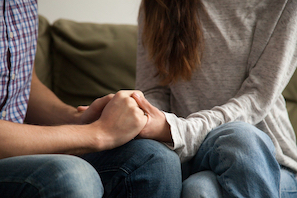People who experience panic attacks often describe their heart and temples as pounding, you may find yourself covered in sweat, feeling faint or weak at the knees and you may feel tingling in your fingers or hands. Many people describe chest pains and for this reason people may understandably confuse a panic attack with a heart attack or stroke.
When panic strikes, most people fear that they have lost control, that everything is doomed, that things are not quite real, or even that you are losing your mind or about to die. For most people panic attacks last for a couple of minutes; but they can continue for longer.
Panic disorder is a set of symptoms which includes panic attacks over a period of time. We will discuss the diagnosis in a moment. It is known that panic disorder is quite common, more so in females. Some people may only experience a single panic attack in their life; others go on to develop the disorder. The usual most common age of onset is believed to be in adolescence.
Counselling therapy by a counsellor or psychologist can be an extremely effective treatment for panic disorder and early intervention is best. Left untreated, panic can interfere significantly in your life.
Some people find that their panic attacks are triggered by particular circumstances and if untreated, this can lead to avoidance of certain people, places or experiences, in extreme cases leading to the development of a phobia. Perhaps you have become sensitive to elevators, planes, escalators, shopping centers or boating? Maybe you no longer leave the house, or need someone to come with you when you go to a feared place? About 30% of people with panic disorder begin to fear leaving their house, which is known as agoraphobia. You can read about this on a separate page. Treating panic disorder is effective in limiting the progression to agoraphobia.
For other people, their panic may also occur alongside other conditions, such as depression or alongside alcohol abuse or addiction. Or, they may be able to confront a feared situation only if accompanied by a spouse or other trusted person. Basically, they avoid any situation they fear would make them feel helpless if a panic attack occurs.











































